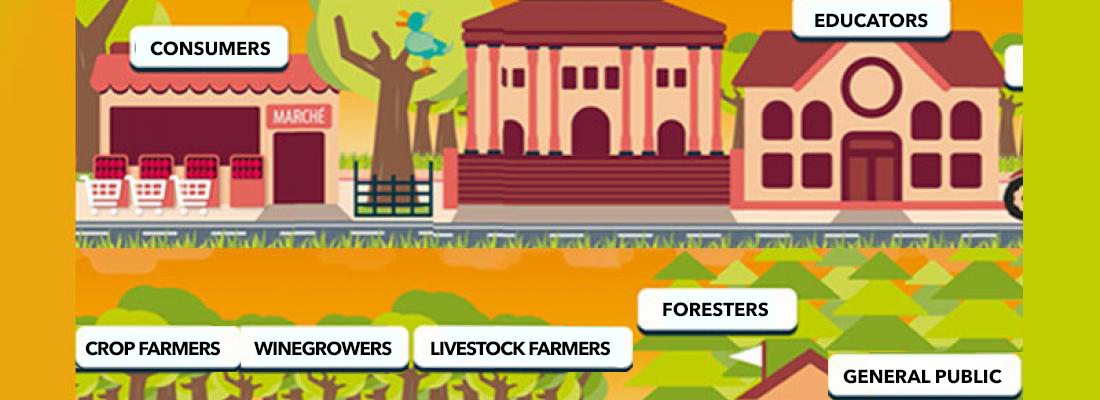Participatory science and research at INRAE
Published on 21 February 2020

Signed in March 2017, the Charter for Participatory Science and Research states the following: "in participatory science and research, knowledge is actively produced in a structured manner through the efforts of researchers and everyday citizens working together individually or collectively."
INRAE has carried out more than 100 projects involving citizen scientists. The degree of participation varies greatly—from simply collecting data to actively contributing to the research. Regardless of the level of investment, these collaborative research efforts have strengthened ties between science and society. The result is two-fold: science that better addresses societal concerns and a society that better understands scientific approaches, limitations, and rigour.
The astounding diversity of INRAE's participatory research
INRAE’s participatory research takes many forms. There are dramatic differences in research subjects, questions, and methodologies; the degree of stakeholder involvement; stakeholder identity (e.g., research partners, industry professionals, amateur scientists, and students), and the products that result (e.g., articles, tools, genetic material, and regulatory recommendations).
Producing knowledge in a new way
Participatory research is a dramatically different method for producing and sharing knowledge. It requires that researchers clearly define the target of their work, establish a common lexicon, jointly specify the research questions, and develop explicit functional rules, including those related to usage rights. Researchers must also invest the time and resources needed to engage with partners over the longer term (e.g., recruit a collaborator with expertise in group management) and have access to funding sources that are specifically suited to participatory research.
